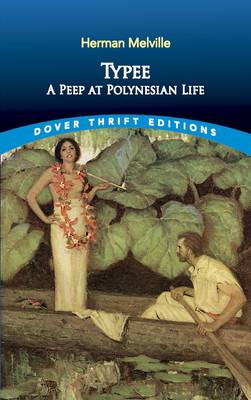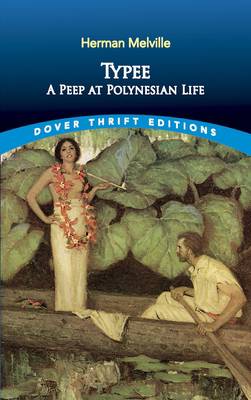
- Afhalen na 1 uur in een winkel met voorraad
- Gratis thuislevering in België vanaf € 30
- Ruim aanbod met 7 miljoen producten
- Afhalen na 1 uur in een winkel met voorraad
- Gratis thuislevering in België vanaf € 30
- Ruim aanbod met 7 miljoen producten
Zoeken
Omschrijving
In this classic of travel and adventure literature, Herman Melville drew upon his adventures in the South Pacific Marquesas Islands as a prisoner of the Typee people. Like the novel's narrator, Melville jumped ship from a whaling vessel and was held in benign captivity by an indigenous tribe with a reputation for ferocity and cannibalism. His startling and romantic glimpses of native peoples and their customs thrilled Victorian readers, making this the most popular of Melville's books in its day.
The study of a culture that both impressed and alarmed the author, this 1846 narrative is also the exciting story of a stranded sailor's attempts to escape from an idyllic but ultimately stultifying existence. Melville's book enjoyed a reputation as a reliable source of firsthand anthropological lore for decades before his use of poetic license came to light. Nevertheless, modern readers appreciate the tale as an intriguing mix of experience and imagination, a combination that enlivened and informed Melville's other works.
The study of a culture that both impressed and alarmed the author, this 1846 narrative is also the exciting story of a stranded sailor's attempts to escape from an idyllic but ultimately stultifying existence. Melville's book enjoyed a reputation as a reliable source of firsthand anthropological lore for decades before his use of poetic license came to light. Nevertheless, modern readers appreciate the tale as an intriguing mix of experience and imagination, a combination that enlivened and informed Melville's other works.
Specificaties
Betrokkenen
- Auteur(s):
- Uitgeverij:
Inhoud
- Aantal bladzijden:
- 304
- Taal:
- Engels
- Reeks:
Eigenschappen
- Productcode (EAN):
- 9780486831756
- Verschijningsdatum:
- 18/09/2019
- Uitvoering:
- Paperback
- Formaat:
- Trade paperback (VS)
- Afmetingen:
- 124 mm x 201 mm
- Gewicht:
- 226 g

Alleen bij Standaard Boekhandel
+ 24 punten op je klantenkaart van Standaard Boekhandel
Beoordelingen
We publiceren alleen reviews die voldoen aan de voorwaarden voor reviews. Bekijk onze voorwaarden voor reviews.











